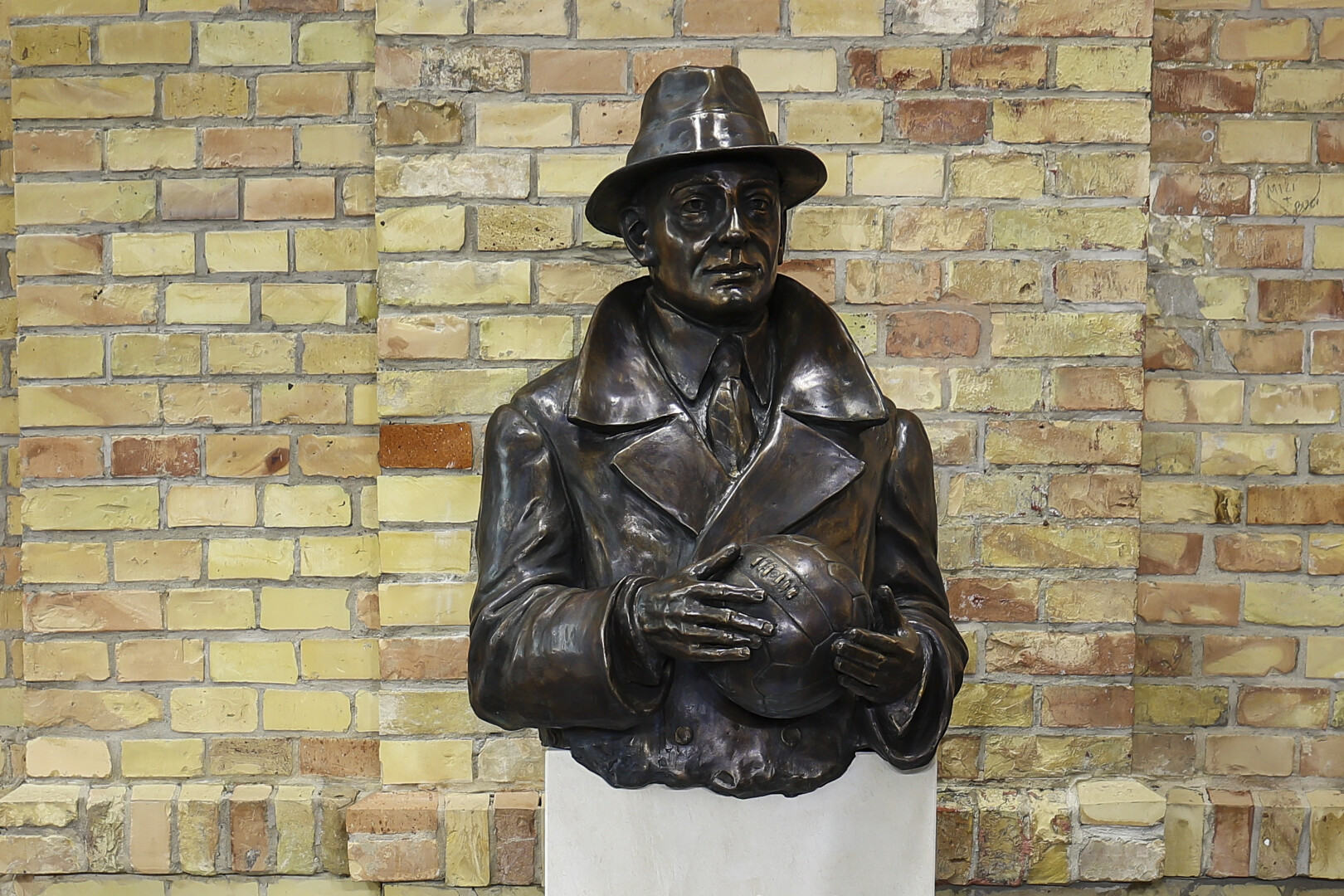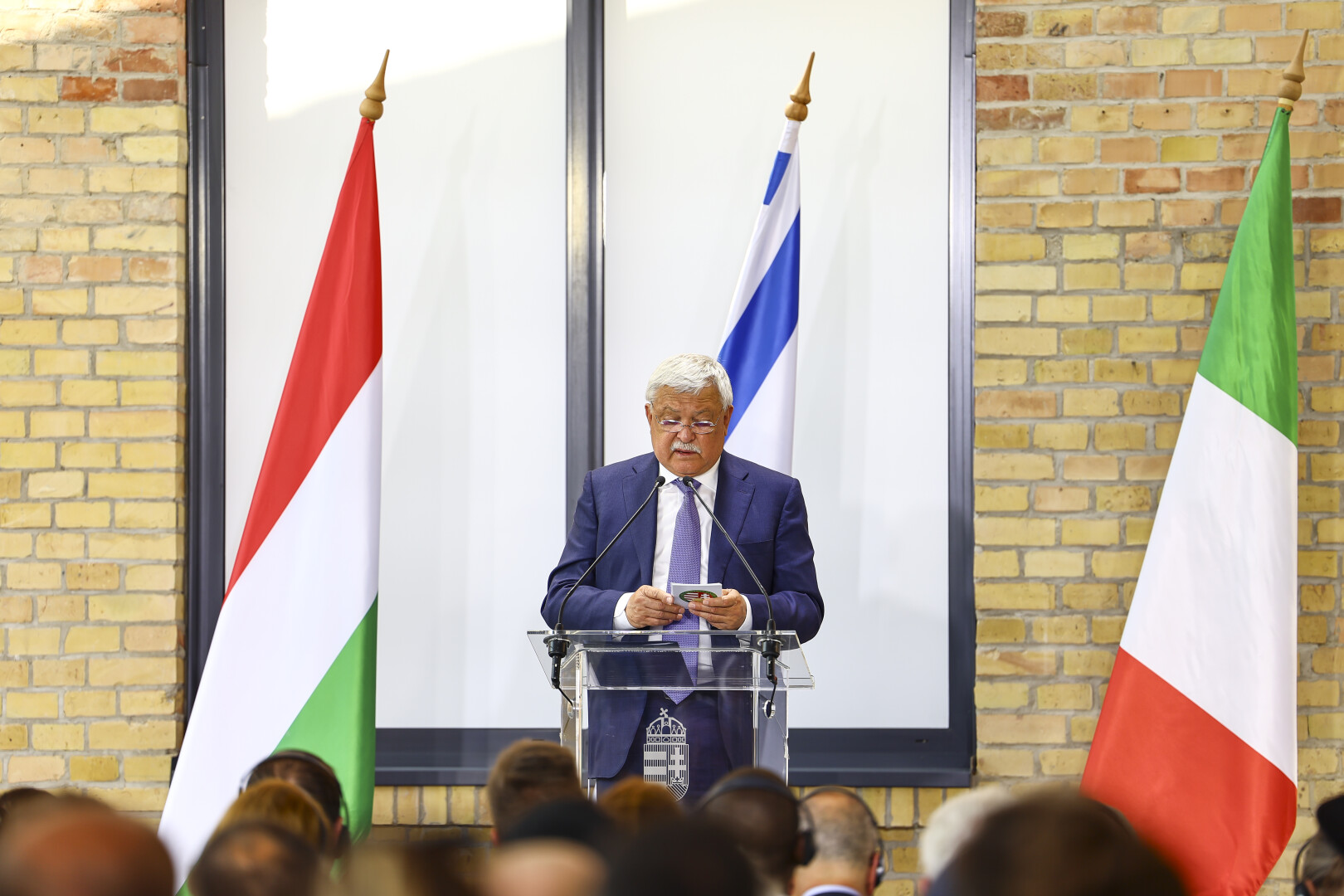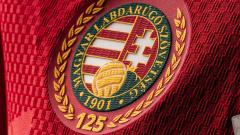Árpád Weisz statue unveiled

The statue paying tribute to the most successful Hungarian coach in Italian football history, Árpád Weisz, who subsequently died in the Holocaust at Auschwitz, was unveiled on Wednesday by MLSZ President Sándor Csányi, Hungarian government minister Gergély Gulyás, Bologna FC President Joey Saputo and Israeli Foreign Minister Eli Cohen at the Eiffel Műhelyház in Budapest.
Árpád Weisz was the most successful Hungarian coach in Italy between the two world wars. This is a huge compliment, especially if we take into account that almost ninety of his compatriots worked in various areas of football there during the quarter of a century in question. However, the former national-team forward, nicknamed Csili at home, not only stood out amongst the Hungarian contingent, his impressive record including one Italian championship title with Ambrosiana and two-and-a-half with Bologna. The mention of "half" a championship title is particularly significant. Bologna's 1938-1939 championship-winning team was coached by Weisz for the first five rounds, but due to the tightening of Italian laws on race, he was forced to leave the team and the country with his family in the second half of October. Even based on this shortened stay though, we can still say with extreme pride that Weisz is the most successful foreign coach in the history of Serie A.

Árpád Weisz was born on 16th April, 1896 in Solt, where his father, Lázár, was the local vet. In the first years of the following decade, the family moved to Budapest, then closer to Kőbánya, firstly living in Hölgy Street and then in Füzér Street. A talented youngster, Weisz had already played youth football for the Törekvés club before making his first-team debut aged 17 just before World War I.
After the outbreak of World War I, he was presumably a first-team regular, but then, in January 1915, Weisz enlisted as a one-year volunteer. On November 28, 1915, he was taken prisoner on the Mrzli Vrh mountain in present-day Slovenia and only returned to Budapest in late autumn of 1919. The then 23-year-old signed up to play football again in Törekvés, while in civilian life he managed to find a job as a bank clerk. The next three-and-a-half years marked the high point of his playing career in Hungary, finishing either fourth or fifth with Torekves in four consecutive seasons, while also making his international debut on 15th June 1922 against Switerland in Budapest - he would go on to make five more appearances for Hungary, the last coming in a single-goal defeat against Austria in May 1923 while still a Törekvés player.
At the invitation of fellow footballer Gyula Feldmann, Árpád Weisz moved to Maccabi Brno in Czechoslovakia and soon became a key player, only for the team nicknamed the Blue Stars to soon go bankrupt. Some of their Hungarian players including Weisz opted to move on to Germany or Italy, so it was for Italian club Alessandria that Weisz continued his career in the 1924-1925 season, before moving to Internazionale in the autumn of 1925. He ended his playing career that winter, scoring three goals in 11 matches, primarily due to a serious knee injury at the relatively young age of 30, and soon turned to the coaching profession. In the spring of 1926, he assisted Augusto Rangoné at Alessandria, and from the summer of 1926 became the coach of Internazionale, where he stayed until 1931, with the exception of the 1928-1929 season, which he spent back home at Sabaria in Szombathely. Weisz would have liked to stay at the strongest club in Western Hungary, but it ended just as it did in Brno, financial ruin for the club. However, Weisz did find love there and married Ilona Reichnitzer before returning to Milan, to his previous club now known as Ambrosiana.
By the end of that season, he had led Ambrosiana to the Scudetto, the Italian championship title, and discovered a prospective world star, Giuseppe Meazza in the process. Weisz had more cause for celebration though, his son Róbert being born (Weisz's daughter Klára was born in 1934). The family of three moved to Bari in 1931 but only for a short time, because the head of the family returned to Ambrosiana-Inter between 1932 and 1934, where he led the team to second place in the Italian league and to Central European Cup victory. A spell at Novara in Serie B followed in the autumn of the following 1934-1935 season but midway through, Bologna bought out his contract and their faith was rewarded with championship titles in each of Weisz's first two league seasons with the red and blues. In 1937, they even achieved international success when they won an eight-team tournament organised in honour of the World Exhibition in Paris, defeating London's Chelsea in the final.
As a result of the Italy's ever more draconian laws on race, Weisz was forced to leave Bologna in the autumn of 1938. They first moved to Paris, then to Dordrecht in the Netherlands. Nazi Germany invaded the country on 10th May 1940, and occupied it in just four days. Weisz was able to work until September 1941, but not after that, nor were his children able to go to school either. The Gestapo arrested the family in the summer of 1942, then sent them to a concentration camp called Westerbork. From there, they were transferred to Auschwitz at the start of October. Árpád Weisz was separated from his family before they were killed on 2 October 1942 in Birkenau. Weisz passed away later, on 31st January 1944, in Auschwitz.
A hírkategória további hírei
2026-01-19 10:36:03
Hungarian Football Federation turns 125 years old
2025-11-25 22:00:38
MLSZ ExCo expects better results from its men's national team and head coach
2025-10-14 00:34:18
Hungarian presence on FIFA Committees increases significantly
2025-10-08 19:27:22











